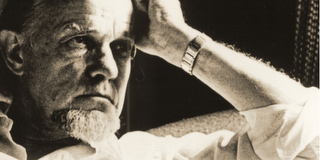
The Great Evangelical Disaster
One of Francis Schaeffer’s greatest strengths was his resolve to battle for truth and morality as an evangelical Christian in the midst of our secular culture. But Schaeffer also was not hesitant to confront fellow evangelicals who failed to do so. Schaeffer refused to rest content but instead called evangelicals out of their cultural ghettos in order to engage others with the Christian worldview. He felt unsettled as he observed that evangelicals had not been on the front lines, contending for the faith and confronting the moral breakdown of the twentieth century.
Schaeffer was confident that the battle for truth had to result in confrontation. “If the truth of the Christian faith,” said Schaeffer in The Great Evangelical Disaster, “is in fact truth, then it stands in antithesis to the ideas and the immorality of our age, and it must be practiced both in teaching and practical action. Truth demands confrontation. It must be loving confrontation, but there must be confrontation nonetheless.”
Schaeffer argued that the “great evangelical disaster” was “the failure of the evangelical world to stand for truth as truth.” Schaeffer’s words were more on target than we could have imagined: “There is only one word for this—namely accommodation: the evangelical church has accommodated to the world spirit of the age.”
But how exactly? First, evangelicals have accommodated on Scripture. They call themselves evangelicals and yet hold to a “weakened view of the Bible and no longer affirm the truth of all the Bible teaches—truth not only in religious matters but in the areas of science and history and morality.” Second, there has been accommodation on issues, moral issues, concerning life and death. And by removing the authority of the Scriptures, we have no credibility to speak with authority on the moral issues of our day. With tears Schaeffer concluded that “the evangelical church is worldly and not faithful to the living Christ.”
Most will dismiss Schaeffer as overstating his case. However, if we are honest with the current state of evangelicalism, I dare say Schaeffer’s words ring true. First, too many evangelicals today are more concerned about offending others than standing for the truth. They do not confront others with the truth, but rather compromise out of fear of man. Second, evangelicals today are playing with fire. Rather than affirming the truthfulness and trustworthiness of Scripture, they have adopted a weak view of the Bible. Consequently, and third, they cannot confront the issues of our day with “Thus says the Lord.”
Christianity stands in antithesis to the spirit of our age. But rather than confronting others with the truth of the Christian faith, we have capitulated. If evangelicalism today is to recover from this great disaster, as Schaeffer called it, there must be a renewed effort to stand for truth, confront others with the truth, and resist the all-too-tempting urge to compromise under the pressure of this world.
Matthew Barrett (Ph.D., The Southern Baptist Theological Seminary) is Assistant Professor of Christian Studies at California Baptist University (OPS). He is also the founder and executive editor of Credo Magazine. Barrett has contributed book reviews and articles to various academic journals, and he is the editor of Whomever He Wills: A Surprising Display of Sovereign Mercy, as well as the author of several other forthcoming books. He is married to Elizabeth and they have two daughters, Cassandra and Georgia.
This column was taken from the recent issue of Credo Magazine, “Francis Schaeffer at 100.” Read others like it today!
The year 2012 is the 100th anniversary of the birth of Francis Schaeffer (1912-1984). It is difficult to think of an evangelical figure in the 20th century who so seriously engaged the philosophies and ideologies of the secular world and set them over against the Christian worldview than Francis Schaeffer.
But Schaeffer was no ordinary evangelical. The man wore knickers and knee high socks when he lectured, sporting not only long hair but a goat’s-chin beard! Most importantly, Schaeffer did not fear man, but feared God. Not only did he engage secular worldviews, but he confronted his fellow evangelicals, even rebuking them for doctrinal concession and compromise.
As many have observed, it is not an overstatement to say that the Schaeffers transformed, reshaped, and in many ways reformed American evangelicalism. Those writing in this new issue of Credo Magazine are proof, each writer bearing testimony to how Francis Schaeffer has made a monumental impact on how we understand and articulate the Christian faith and life in the world of ideas. Contributors include Bruce Little, William Edgar, Bryan Follis, and Stephen Wellum, and many others.


